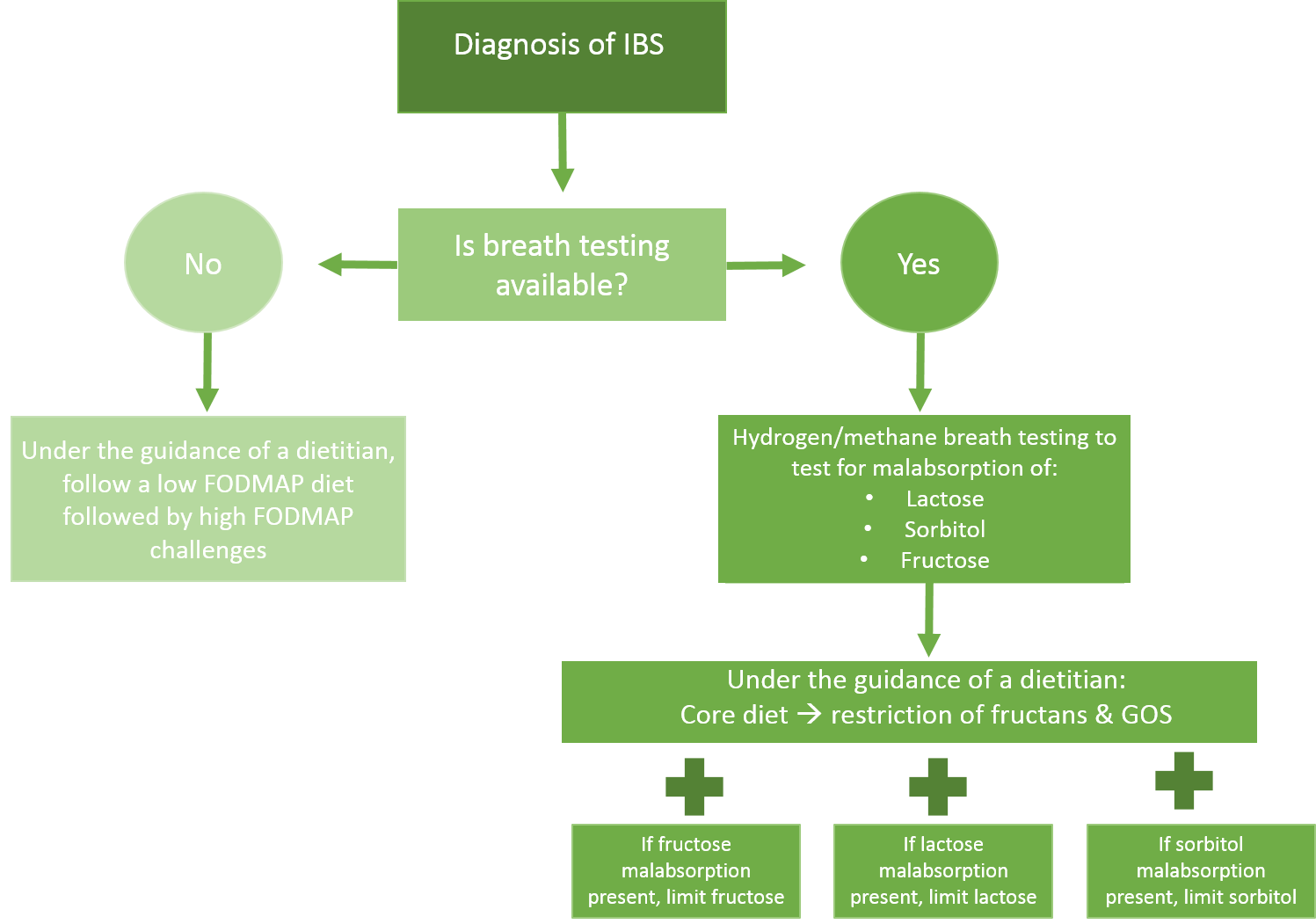Irritable Bowel Syndrome
What is IBS?
Irritable Bowel Syndrome (IBS) is a term used to describe a broad set of digestive symptoms. The diagnosis of IBS is usually made after more serious conditions like coeliac disease and inflammatory bowel disease have been ruled out.
IBS is a common problem with approximately one in seven Australian suffering from the uncomfortable symptoms.
Common symptoms of IBS include:
- Abdominal pain
- Flatulence
- Bloating
- Abdominal distension
- Diarrhoea
- Constipation
- Fatigue
Certain factors can trigger symptoms of IBS:
- Stress
- Dietary triggers
- Infection eg. Gastroenteritis
- Medication
What are the dietary triggers of IBS?
For many years, people have attributed alcohol, caffeine, spicy and fatty foods to causing symptoms of IBS. This research has since been disproven. These foods can aggravate symptoms of IBS, but usually when the gut is already irritated.
Recent research has found a link between a group of sugars called FODMAPs (Fermentable Oligo-saccharides, Di-saccharides, Mono-saccharides and Polyols) and IBS symptoms.
How do FODMAPs produce symptoms of IBS?
FODMAPs are short-chain carbohydrates that occur naturally in many foods, and are sometimes added as flavourings to processed foods.
Unlike other sugars, FODMAPs are not absorbed in the small intestine. They instead move to the large intestine, where the bacteria present use the FODMAPs as a food source. This reaction produces gas and can trigger the unpleasant symptoms of IBS.
In someone with IBS, these carbohydrates are poorly absorbed by the small intestine (where most nutrients are usually absorbed). They move to the large intestine and are fermented by the bacteria, and produce gas which is linked with IBS symptoms.
How can you diagnose IBS?
Hydrogen/methane breath testing can identify individuals who malabsorb certain FODMAPs (fructose, lactose & sorbitol).

How can a dietitian help with IBS symptoms?
A specialist dietitian can help with modifying your diet. There are many potential foods that could be contributing to your food intolerance and symptoms. A dietitian can determine whether you have a food intolerance by cross checking breath-test results with a detailed diet history.
Once you know which foods trigger your symptoms, you can start restricting. However severity of symptoms can vary for everyone, some people may need to eliminate the food completely, others may need to only reduce their intake. As you cut out the foods that trigger your symptoms, you need to replace them with healthy low FODMAP alternatives to prevent against nutrient deficiencies. A dietitian can assist with ensuring you are consuming a balanced diet whilst living symptom-free!
It is helpful if you keep a food and symptom diary prior to your appointment with the dietitian.
You can find a printable copy of the Gippsland Gastro “7-day food and symptom” diary below.
Sources
7-day food diary FODMAP diet 2 IBS Info